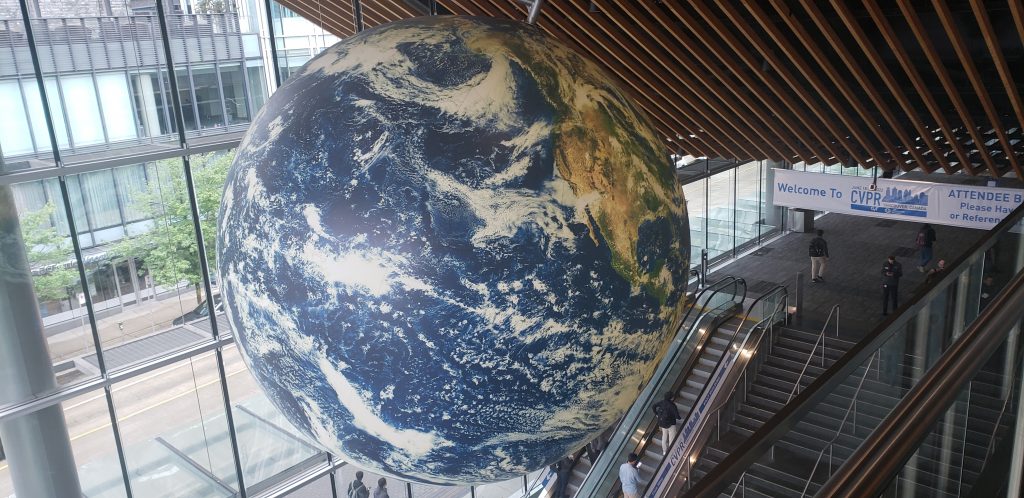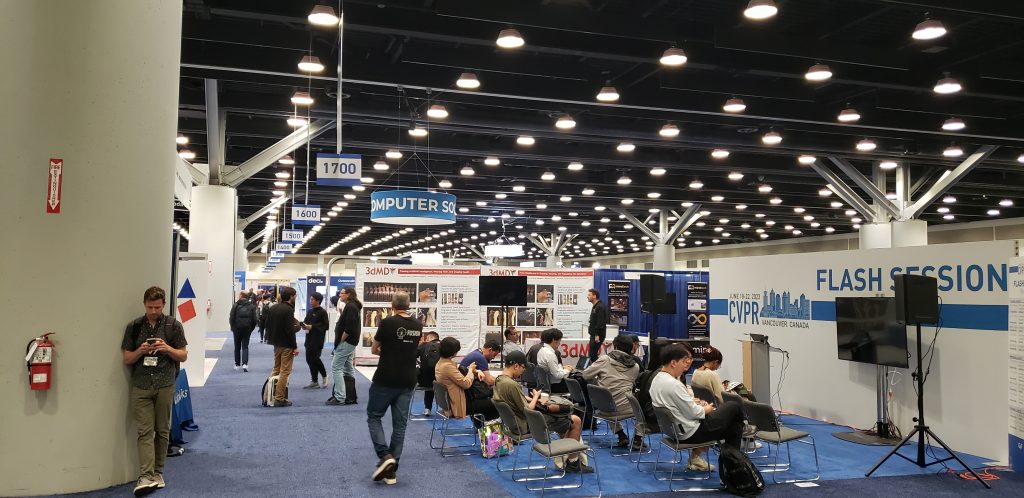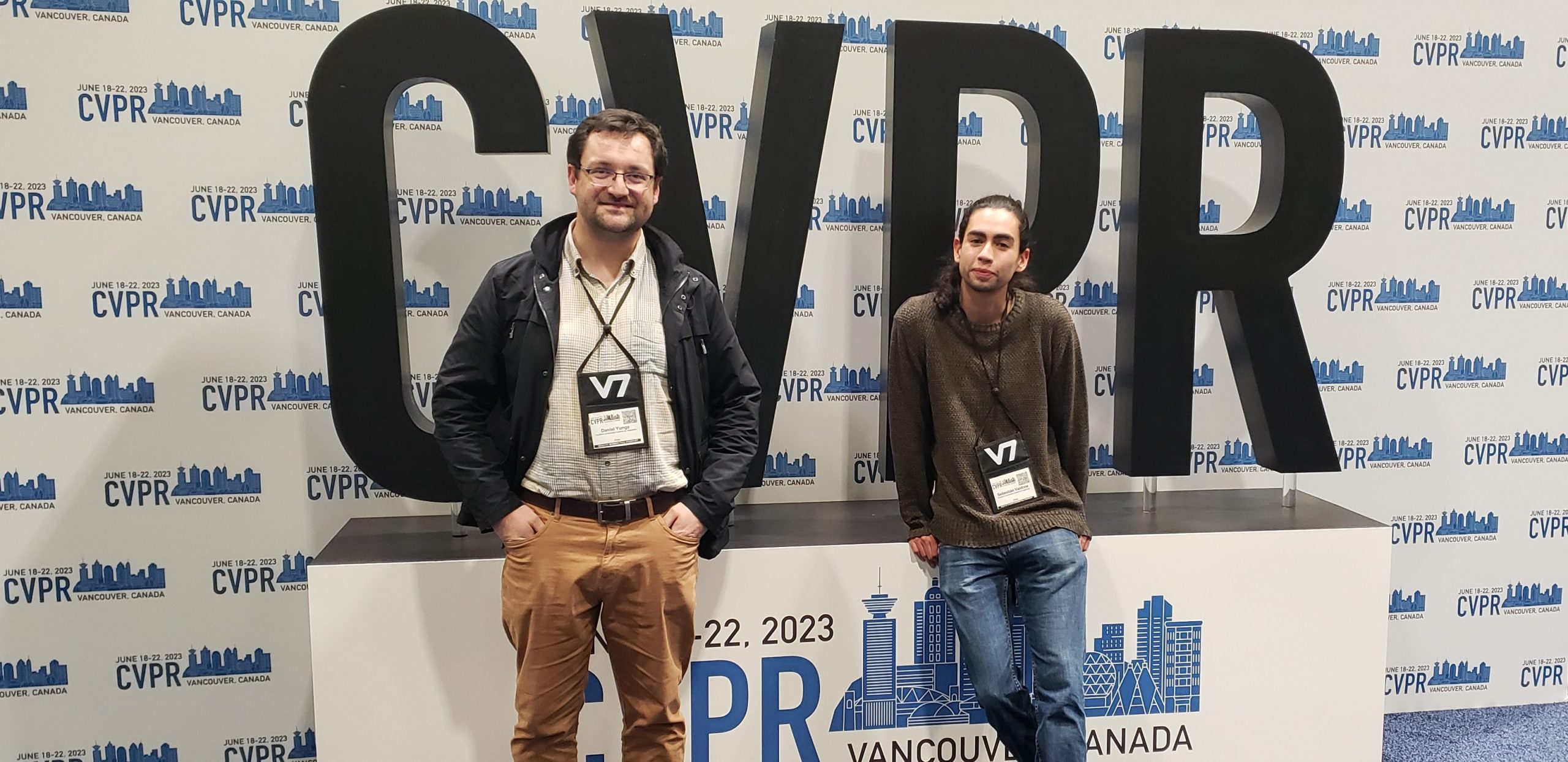The 2023 edition of the Conference on Computer Vision and Pattern Recognition (CVPR) took place from June 18th to June 22nd in Vancouver, Canada. Two representatives from Optolab attended to learn about the latest technology in this field.
This event is recognized as the largest conference in computer vision globally, where companies showcase their latest technologies, and experts present their most recent work.
Sebastián Valdivia, a master’s student, professor, and member of Optolab, traveled alongside Daniel Yunge, a professor from the School of Electrical Engineering (EIE) and director of LabSens, to participate in the conference. They attended plenary sessions and explored the poster sessions.
Sebastián Valdivia, the graduate student, has completed his undergraduate thesis on the applications of cameras with spiking neural networks and continues his research at Optolab. He traveled to CVPR to discover what other scientists are working on in this area.
“I met people from the University of Zurich, South Korea, and India who were presenting advances with spiking neural networks. By attending, I realized that many people are working on similar things to my thesis, which was quite validating. I hadn’t had the opportunity to meet people working on the same topic as me”, he noted.
Collaboration on the COCTELS Project
Dr. Daniel Yunge, traveled to Vancouver as part of the collaboration with Optolab through the Fondecyt Regular project “COCTELS” in which he is a co-investigator. The space surveillance project aims to track space debris using a new technology, scalable neuromorphic cameras.
He attended the conference with the goal of learning more about neuromorphic systems, which he defines as an emerging area, “this is something new, basically electronic brains. It’s about emulating the brain, but at the electronic or hardware level”, Dr. Yunge explained.
What impressed him the most was the range of applications for so-called event cameras. He expressed that seeing them in action made him eager to put the knowledge acquired into practice. “It’s not complicated at all. When you read a paper, you imagine something super bizarre and complex. But when you see a demonstration like those at CVPR, you realize that it’s not really that complex. So, we can easily start doing demos or articles on camera-based topics, and who knows, maybe next year we can submit a paper to the conference, which would be great”, he said.
He also shared that the potential, both economically and in terms of performance in adverse conditions of neuromorphic systems, will allow the use of these cameras in various applications. This includes personal interests for Professor Yunge, such as well-being or care for individuals. Additionally, there are applications in aerospace themes, which Optolab is exploring, and many more.



Experience at the Conference
Regarding the experience, Valdivia commented, “It was very useful for learning more about the field. Moreover, some of us from the neuromorphic community went for some beers afterward, and we could get to know each other better and exchange contacts. So, I’ll be in touch with some to gather details that will be useful for the future of our research at Optolab”.
Professor Yunge noted that “on the one hand, it was like a glimpse into the future, but on the other hand, you realize that those presenting are regular people. The best in the field gathered there, and it was a great opportunity to get first-hand information about the trend and the direction of neuromorphic systems development”.
It was a fantastic opportunity to continue building connections between Optolab and its collaborators while learning about many more applications that could potentially be integrated into the projects and research carried out at the PUCV Optoelectronics Laboratory.

Sebastián Valdivia’s experience and Dr. Daniel Yunge’s.
